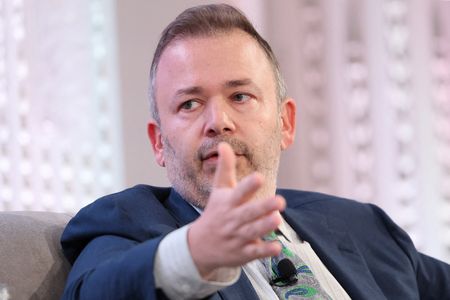By Nell Mackenzie
LONDON (Reuters) – Activist hedge fund Saba Capital Management has reached a restructuring deal with another of the UK investment trusts it has targeted in a longstanding campaign to achieve higher returns.
Saba said on Wednesday it had agreed with CQS Natural Resources Growth & Income that the investment trust will offer investors a cash exit for their shares at full value, or if enough investors stick with the fund, it will raise dividends and lower management fees.
WHY IT’S IMPORTANT
Five of nine UK investment trusts have voted to restructure or liquidate this year because of Saba’s $5.5 billion activist campaign that targeted UK investment funds.
CONTEXT
Saba Capital Management, founded and run by Boaz Weinstein, began the campaign in 2024 to overhaul seven close-ended investment trust boards over performance, adding more funds in February.
Investment trusts hold a range of stocks and because of the costs of running them, funds’ shares can trade at a discount to their net asset value (NAV).
Weinstein first demanded that the trusts vote to give Saba board seats so the hedge fund might run those funds. But shareholders rejected this and more than half have now decided instead to restructure.
BY THE NUMBERS
Saba’s CEF Opportunities 1 fund is up 5.11% in May and down 0.76% for 2025 so far, said HSBC data seen by Reuters. Here is the latest campaign update:
KEY QUOTE
“This outcome gives CYN (CQS Natural Resources Growth & Income) shareholders a clear choice: full liquidity at NAV or the opportunity to stay invested in a trust with a higher dividend and a reduced management fee. It’s a true win-win,” Weinstein said in a statement.
Yet some investors like these discounts and restructuring means a loss of opportunity, like catching the funds at a cheap moment and collecting dividend payments.
“Discounts to NAV are not always bad,” said Chris Barter, an investment trust investor. “If you’re an income investor buying an investment trust at a 15-25% discount, you’ll achieve a yield which mutual funds and ETFs simply can’t reach.”
(Reporting by Nell Mackenzie; Editing by Dhara Ranasinghe and David Holmes)











